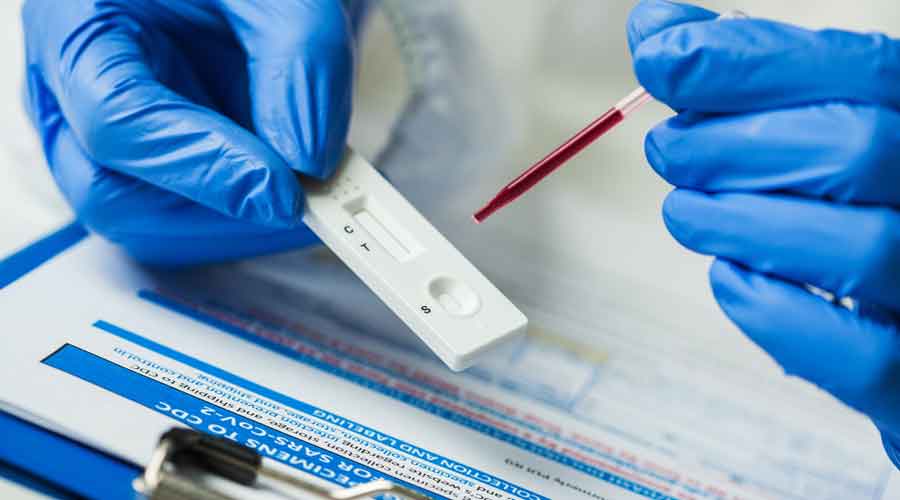Your blood carries the memory of every pathogen you’ve ever encountered. If you’ve been infected with the coronavirus, your body most likely remembers that, too.
Antibodies are the legacy of that encounter. Why, then, have so many people stricken by the virus discovered that they don’t seem to have antibodies?
Blame the tests.
Most commercial antibody tests offer crude yes-no answers. The tests are notorious for delivering false positives — results indicating that someone has antibodies when he or she does not.
But the volume of coronavirus antibodies drops sharply once the acute illness ends. Now it is increasingly clear that these tests may also produce false-negative results, missing antibodies to the coronavirus that are present at low levels.
Moreover, some tests — including those made by Abbott and Roche and offered by Quest Labs and LabCorp — are designed to detect a subtype of antibodies that doesn’t confer immunity and may wane even faster than the kind that can destroy the virus.
What that means is that declining antibodies, as shown by commercial tests, don’t necessarily mean declining immunity, several experts said. Long-term surveys of antibodies, intended to assess how widely the coronavirus has spread, may also underestimate the true prevalence.
“We’re learning a lot about how antibodies change over time,” said Dr Fiona Havers, a medical epidemiologist who has led such surveys for the Centres for Disease Control and Prevention.
It’s increasingly clear now that this virus behaves much like any other.
A mild illness may trigger production of only a few antibodies, and a severe one many more. The vast majority of people who become infected with the coronavirus have few to no symptoms, and those people may produce a milder immune response than those who become severely ill, Dr Havers said.
But even a minor infection is often enough to teach the body to recognise the intruder.
After the battle ends, balloon-like cells that live in the bone marrow steadily pump out a small number of specialised assassins. The next time — and every time after that — that the body comes across the virus, those cells can mass-produce antibodies within hours. The mnemonic response grows stronger with every encounter.
“Whatever your level is today, if you get infected, your antibody titers are going to go way up,” said Dr Michael Mina, an immunologist at Harvard University, referring to the levels of antibodies in the blood. “The virus will never even have a chance the second time around.”
A single drop of blood contains billions of antibodies, all lying in wait for their specific targets. Sometimes, as may be the case for antibodies to the coronavirus, there are too few to get a positive signal on a test — but that does not mean the person tested has no immunity to the virus.
“Even if their antibodies wane below the limits of detection of our instruments, it doesn’t mean their ‘memory’ is gone,” Dr Mina said.
A small number of people may not produce any antibodies to the coronavirus. But even in that unlikely event, they will have so-called cellular immunity, which includes T cells that learn to identify and destroy the virus. Virtually everyone infected with the coronavirus seems to develop T-cell responses, according to several recent studies.
“This means that even if the antibody titer is low, those people who are previously infected may have a good enough T-cell response that can provide protection,” said Akiko Iwasaki, an immunologist at Yale University.
T cells are harder to detect and to study, however, so when it comes to immunity, antibodies have received all of the attention. The coronavirus carries several antigens — proteins or pieces of a protein — that can provoke the body into producing antibodies.
The most powerful antibodies recognise a piece of the coronavirus’s spike protein, the receptor binding domain, or RBD. That is the part of the virus that docks onto human cells. Only antibodies that recognise the RBD can neutralise the virus and prevent infection.
But the Roche and Abbott tests that are now widely available — and several others authorised by the Food and Drug Administration — instead look for antibodies to a protein called the nucleocapsid, or N, that is bound up with the virus’s genetic material.
The N protein is plentiful in the blood, and testing for antibodies to it produces a swifter, brighter signal than testing for antibodies to the spike protein. Because antibody tests are used to detect past infection, however, manufacturers are not required to prove that the antibodies their tests seek are those that actually confer protection against the virus.
A spokesperson at Abbott said the test had 100 per cent sensitivity 17 days after symptoms began but did not provide information about sensitivity beyond that time.
Dr Beatus Ofenloch-Haehnle, who heads immunoassay research at Roche, defended the company’s antibody test. “There is some fluctuation, but no waning at all,” he said.
New York Times News Service











